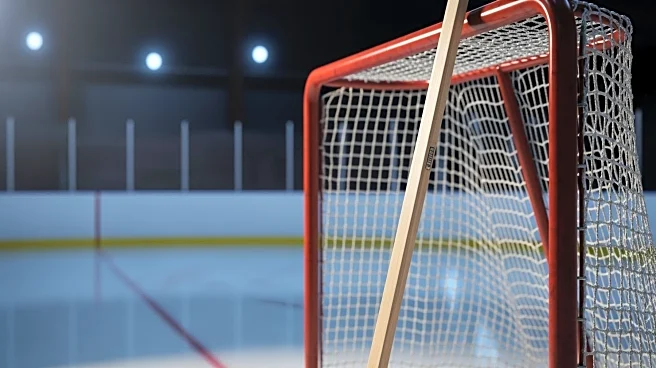What's Happening?
Alex Ovechkin, the star player for the Washington Capitals, scored his 903rd career goal, leading his team to a 2-1 victory over the Los Angeles Kings. This goal marked his 442nd at Capital One Arena, surpassing Gordie Howe's record of 441 goals at Detroit
Olympia. Ovechkin's achievement highlights his long-standing career at the venue, where he has played since his NHL debut in 2005. The record-breaking goal also brought him close to tying Jaromir Jagr for the most game-winning goals in NHL history.
Why It's Important?
Ovechkin's record underscores his significant impact on the NHL and his enduring presence in the sport. Breaking a record held by Gordie Howe, a legendary figure in hockey, cements Ovechkin's status as one of the greatest players in NHL history. This achievement not only enhances his legacy but also boosts the Washington Capitals' profile, attracting more fans and increasing the team's marketability. Ovechkin's continued performance at a high level, even at age 40, demonstrates the potential for longevity in professional sports.
What's Next?
As Ovechkin continues to play, he is on pace to score 25 goals by the end of the season. His pursuit of Jaromir Jagr's record for game-winning goals will be closely watched by fans and analysts. The Capitals may leverage Ovechkin's achievements in promotional efforts, potentially increasing attendance and viewership. Additionally, Ovechkin's performance could inspire other veteran players to extend their careers, influencing team strategies and player development across the league.
Beyond the Headlines
Ovechkin's record-breaking goal at Capital One Arena highlights the cultural significance of sports venues in athletes' careers. The arena, having undergone several name changes, remains a central part of Ovechkin's legacy. This achievement may prompt discussions about the role of sports venues in shaping athletes' careers and the emotional connections fans develop with these locations. Furthermore, Ovechkin's success at an older age challenges stereotypes about aging athletes, potentially influencing perceptions of age and performance in sports.















